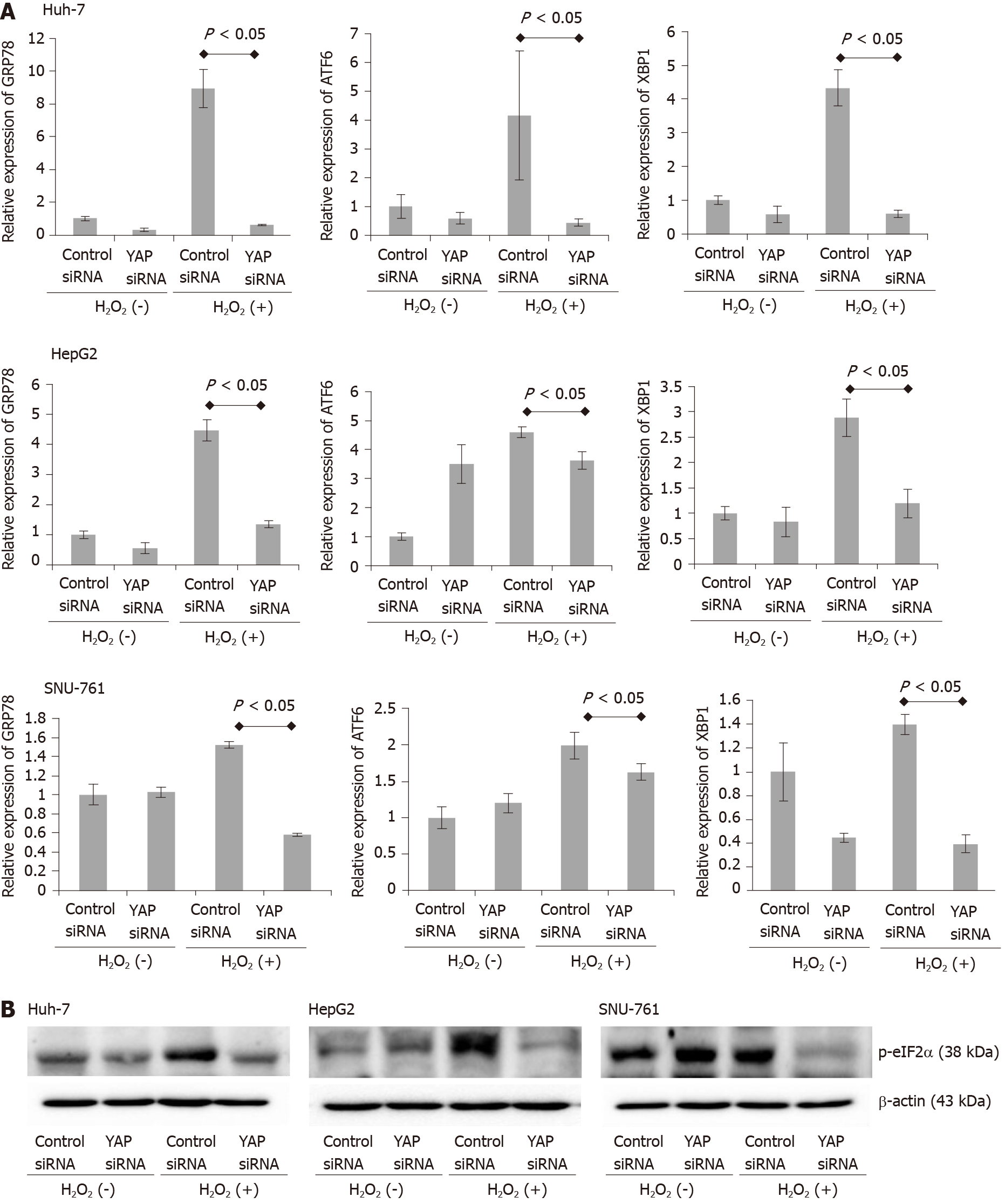Copyright
©The Author(s) 2020.
World J Gastroenterol. Nov 14, 2020; 26(42): 6599-6613
Published online Nov 14, 2020. doi: 10.3748/wjg.v26.i42.6599
Published online Nov 14, 2020. doi: 10.3748/wjg.v26.i42.6599
Figure 6 The reactive oxygen species-induced oncogenic action of yes-associated protein-1 in hepatocellular carcinoma cells led to an enhanced unfolded protein response.
A: Yes-associated protein-1 (YAP-1) small interfering RNA (siRNA) significantly decreased the mRNA expression of unfolded protein response markers, including 78-kDa (glucose-regulated protein 78/BiP), activating transcription factor-6, and XBP1, in reactive oxygen species (ROS)-exposed hepatocellular carcinoma (HCC) cells (P < 0.05). The experiment was repeated three times. The data are expressed as the mean ± SD; B: Immunoblot analyses of YAP-1 and phosphorylated-eIF-2α were performed in ROS-exposed HCC cells transfected with YAP-1 siRNA or control siRNA. The experiment was repeated three times. GRP78: Glucose-regulated protein 78; ATF-6: Activating transcription factor-6; YAP: Yes-associated protein; siRNA: Small interfering RNA.
- Citation: Cho Y, Park MJ, Kim K, Kim SW, Kim W, Oh S, Lee JH. Reactive oxygen species-induced activation of Yes-associated protein-1 through the c-Myc pathway is a therapeutic target in hepatocellular carcinoma. World J Gastroenterol 2020; 26(42): 6599-6613
- URL: https://www.wjgnet.com/1007-9327/full/v26/i42/6599.htm
- DOI: https://dx.doi.org/10.3748/wjg.v26.i42.6599









